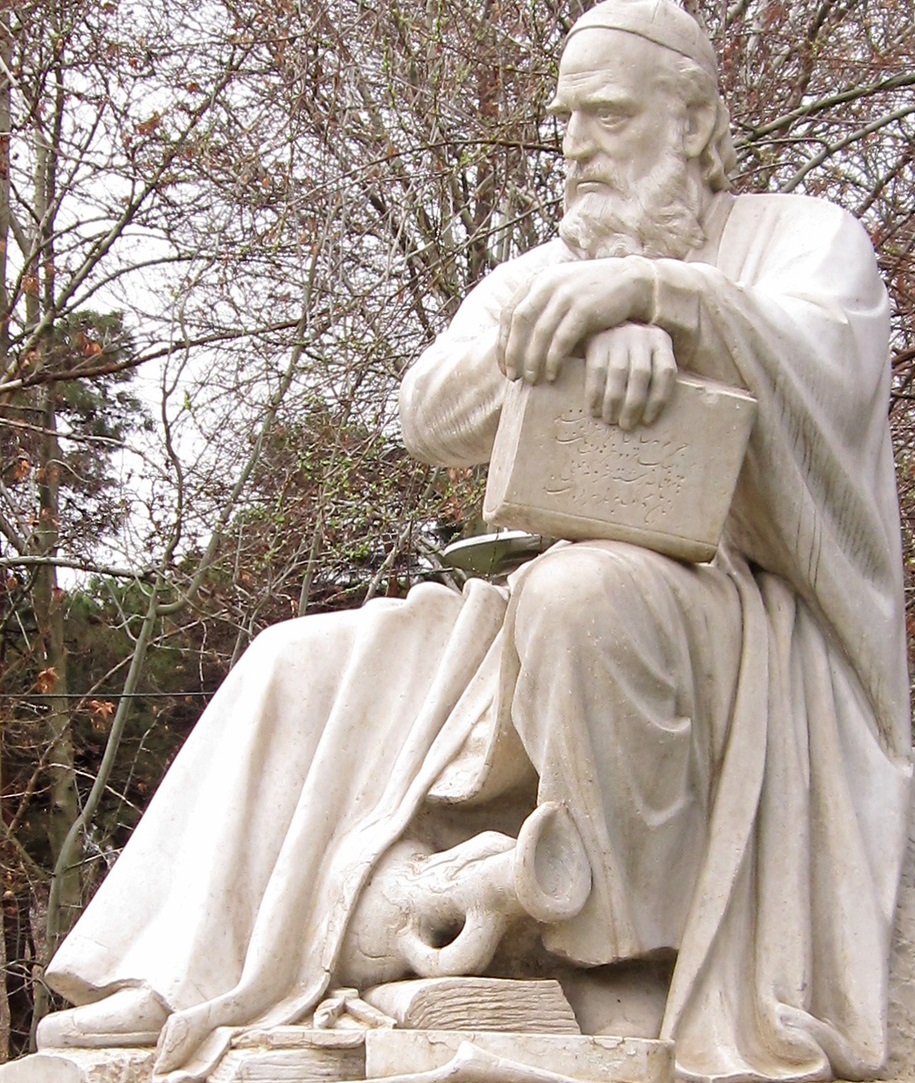Explore: Omar
Discover books, insights, and more — all in one place.
Learn more about Omar with top reads curated from trusted sources — all in one place.
AI-Generated Overview About “omar”:
Books Results
Source: The Open Library
The Open Library Search Results
Search results from The Open Library
1The Icarus agenda
By Robert Ludlum

“The Icarus agenda” Metadata:
- Title: The Icarus agenda
- Author: Robert Ludlum
- Languages: English - fre
- Number of Pages: Median: 683
- Publisher: ➤ G.K. Hall - Guild Publishing - HarperCollins - Wilhelm Heyne - Bantam Books - Orion (an Imprint of The Orion Publishing Group Ltd ) - Guild - Laffont - Random House Value Publishing - Random House - Bantam
- Publish Date: ➤ 1988 - 1989 - 1991 - 1992 - 1994 - 2004
- Publish Location: ➤ Boston, Mass - München - New York - [Paris] - Toronto - London
- Dewey Decimal Classification: 813.54
- Library of Congress Classification: PS-3562.00000000.U26124 1987PS-3562.00000000.U26 I24 1988bPS-3562.00000000.U26PS-3562.00000000.U26 I24 1987PS-3562.00000000.U26 I24 1988
“The Icarus agenda” Subjects and Themes:
- Subjects: ➤ Terrorists - Fiction - Spy stories - Hostages - Suspense fiction - Omar - Woprld politics - Political fiction - Fiction, political - Fiction, thrillers, general - Large type books - Fiction, thrillers, espionage
Edition Identifiers:
- The Open Library ID: ➤ OL7824273M - OL2398670M - OL18708837M - OL7984627M - OL7677186M - OL18391047M - OL15263705M - OL2529796M - OL17243555M - OL15233345M - OL17526894M
- Online Computer Library Center (OCLC) ID: 16901124 - 19133785 - 465842461 - 17621926
- Library of Congress Control Number (LCCN): 87028624 - 88005242
- All ISBNs: ➤ 9780517116968 - 0752858505 - 0517116960 - 3453042034 - 9783453042032 - 9780816145263 - 0553278002 - 9780394543970 - 0586064559 - 0816145261 - 2253061638 - 9782253061632 - 9780586064559 - 9780752858500 - 0394543971 - 9780553278002
Book Classifications
- Dewey Decimal (DDC): ➤ ❛813.54❜.
- Library of Congress Classification (LCC): ➤ ❛PS-3562.00000000.U26124 1987❜, ❛PS-3562.00000000.U26 I24 1988b❜, ❛PS-3562.00000000.U26❜, ❛PS-3562.00000000.U26 I24 1987❜ & ❛PS-3562.00000000.U26 I24 1988❜.
Author's Alternative Names:
"Michael Shepherd" and "Jonathan Ryder"Access and General Info:
- First Year Published: 1988
- Is Full Text Available: Yes
- Is The Book Public: No
- Access Status: Borrowable
Online Access
Downloads Are Not Available:
The book is not public therefore the download links will not allow the download of the entire book, however, borrowing the book online is available.
Online Borrowing:
- Borrowing from Open Library: Borrowing link
- Borrowing from Archive.org: Borrowing link
Online Marketplaces
Find The Icarus agenda at online marketplaces:
- Amazon: Audiable, Kindle and printed editions.
- Ebay: New & used books.
2The Icarus agenda
By Robert Ludlum

“The Icarus agenda” Metadata:
- Title: The Icarus agenda
- Author: Robert Ludlum
- Language: English
- Number of Pages: Median: 678
- Publisher: Bantam Books
- Publish Date: 1989
- Publish Location: Toronto - New York
- Dewey Decimal Classification: [Fic]
- Library of Congress Classification: PS-3562.00000000.U26 I24 1989
“The Icarus agenda” Subjects and Themes:
- Subjects: ➤ Hostages - Suspense fiction - Omar - Woprld politics - Terrorists - Political fiction - Fiction
Edition Identifiers:
- The Open Library ID: OL24937562M
- Online Computer Library Center (OCLC) ID: 19133785
- All ISBNs: 9780553278002 - 0553278002
Book Classifications
- Dewey Decimal (DDC): ➤ ❛[Fic]❜.
- Library of Congress Classification (LCC): ➤ ❛PS-3562.00000000.U26 I24 1989❜.
Author's Alternative Names:
"Michael Shepherd" and "Jonathan Ryder"Access and General Info:
- First Year Published: 1989
- Is Full Text Available: Yes
- Is The Book Public: No
- Access Status: Printdisabled
Online Access
Downloads Are Not Available:
The book is not public therefore the download links will not allow the download of the entire book, however, borrowing the book online is available.
Online Borrowing:
Online Marketplaces
Find The Icarus agenda at online marketplaces:
- Amazon: Audiable, Kindle and printed editions.
- Ebay: New & used books.
Wiki
Source: Wikipedia
Wikipedia Results
Search Results from Wikipedia
Umar

ٱلْخَطَّاب, romanized: ʿUmar ibn al-Khaṭṭāb; c. 584 – 644), also spelled Omar, was the second Rashidun caliph, ruling from August 634 until his assassination
Umar ibn al-Khattab (Arabic: عُمَر بْن ٱلْخَطَّاب, romanized: ʿUmar ibn al-Khaṭṭāb; c. 584 – 644), also spelled Omar, was the second Rashidun caliph, ruling from August 634 until his assassination in 644. He succeeded Abu Bakr (r. 632–634) and is regarded as a senior companion and father-in-law of the Islamic prophet Muhammad. Initially, Umar opposed Muhammad, who was his distant Qurayshite kinsman. However, after converting to Islam in 616, he became the first Muslim to openly pray at the Kaaba. He participated in nearly all of Muhammad’s battles and expeditions, and Muhammad conferred upon him the title al-Fārūq ("the Distinguisher") for his sound judgement. After Muhammad’s death in June 632, Umar pledged allegiance to Abu Bakr as the first caliph and served as his chief adviser. In 634, shortly before his death, Abu Bakr nominated Umar as his successor. During Umar’s reign, the caliphate expanded at an unprecedented rate, conquering the Sasanian Empire and more than two-thirds of the Byzantine Empire. His campaigns against the Sasanians resulted in the conquest of Persia within two years (642–644). According to Jewish tradition, Umar lifted the Christian ban on Jews entering Jerusalem and permitted them to worship there. Umar was assassinated by the Persian slave Abu Lu'lu'a Firuz in 644. Umar is widely credited with expanding the Islamic world beyond Arabia and introducing the Hijri Calendar. Historians generally regard him as one of the most powerful and influential Muslim caliphs in history. In Sunni Islamic tradition, he is revered as a just ruler and a paragon of Islamic virtues, with some hadiths identifying him as the second greatest of the Sahabah after Abu Bakr. In Twelver Shia tradition, however, he is viewed negatively.
Ilhan Omar

Ilhan Abdullahi Omar (born October 4, 1982) is an American politician serving as the U.S. representative for Minnesota's 5th congressional district since
Mullah Omar
(between 1950 to 1962 – 23 April 2013), commonly known as Mullah Omar or Muhammad Omar, was an Afghan militant leader and founder and the first leader
Muhammad Umar Mujahid (between 1950 to 1962 – 23 April 2013), commonly known as Mullah Omar or Muhammad Omar, was an Afghan militant leader and founder and the first leader of the Taliban from 1994 until his death in 2013. During the Third Afghan Civil War, the Taliban fought the Northern Alliance and took control of most of the country, establishing its First Islamic Emirate for which Omar began to serve as Supreme Leader in 1996. Shortly after al-Qaeda carried out the September 11 attacks, the Taliban government was toppled by an American invasion of Afghanistan, prompting Omar to go into hiding; he successfully evaded capture by the American-led coalition before dying in 2013 from tuberculosis. Born into a religious family in Kandahar, Omar was educated at local madrasas in Afghanistan. After Afghanistan was invaded by the Soviet Union in 1979, he joined the Afghan mujahideen to fight in the Soviet–Afghan War and he was trained by Amir Sultan Tarar. He served as an important rebel commander during several skirmishes, losing his right eye in an explosion. The Soviets eventually withdrew from the country in 1989 and Afghanistan's Soviet-backed Democratic Republic was toppled in 1992, triggering the Second Afghan Civil War. While initially remaining quiet and focused on continuing his studies, Omar became increasingly discontent with what he perceived as fasād in the country, ultimately prompting him to return to fighting in the Civil War. In 1994, Omar, along with religious students in Kandahar, formed the Taliban, which emerged victorious against other Afghan factions by 1996. Omar led the Taliban to form a Sunni Islamic theocracy headed by the Supreme Council, known as the Islamic Emirate of Afghanistan, which strictly enforced sharia. While ruling between 1996 and 2001, the Taliban were widely condemned for committing massacres against civilians; discrimination against religious and ethnic minorities; banning women from school and most employment; and the destruction of cultural monuments, including the Buddhas of Bamiyan, which Omar personally ordered. After al-Qaeda, which had been given sanctuary in Afghanistan by the Taliban, carried out the September 11 attacks against the United States in 2001, American president George W. Bush demanded that the Taliban extradite al-Qaeda's leader Osama bin Laden to the United States. The Taliban, under the leadership of Mullah Omar, refused to extradite him to the U.S. without concrete evidence linking him to the attacks, and they requested proof of his involvement in 9/11. The United States, however, had enough proof of him being in Afghanistan and under the Taliban's protection, and subsequently began the Global War on Terrorism and led a multinational invasion of Afghanistan in October 2001, greatly bolstered by the anti-Taliban Northern Alliance. By December 2001, the Taliban government had been ousted by the American-led coalition; Omar fled Kandahar, went into hiding in Zabul Province, and delegated operational control of the Taliban to his deputies. Under his command, the Taliban launched an insurgency against the new Afghan government and the coalition. Although Omar was the subject of a decade-long international manhunt, he remained in hiding for the rest of his life. He died in 2013, reportedly due to tuberculosis, which was not revealed publicly until 2015. In 2021, the Taliban deposed the Afghan government and regained power following the fall of Kabul. Omar remains a largely popular figure amongst the Taliban, who view him as a key freedom fighter who defended Afghanistan's Islamic principles – first against the Soviet empire and later against the Western world. Others have criticised him for his method of governance and his religious dogmatism.
Omar Mateen

Omar Mir Seddique Mateen (Pashto: عمر مير صديق متين; born Omar Mir Seddique; November 16, 1986 – June 12, 2016) was an American mass murderer who killed
Omar Mohamed Omar
Omar Mohamed Omar (Somali: Cumar Maxamed Cumar, Arabic: عمر محمد عمر) (1970 – 25 December 2008), also known as Anyeelo, was a Somali basketball player
Omar Sy

Omar Sy (French pronunciation: [ɔmaʁ si], Fula: 𞤌𞤥𞤢𞤪 𞤅𞤭, romanized: Omar Si; born 20 January 1978) is a French actor, best known in France for his
Omar Epps

Omar Hashim Epps (born July 20, 1973) is an American actor, rapper, and producer. Epps's film roles include Juice, Higher Learning, The Wood, In Too Deep
Omar Sharif
Omar Sharif (Arabic: عمر الشريف, Egyptian Arabic: [ˈʕomɑɾ eʃʃɪˈɾiːf]; born Michel Yusef Dimitri Chalhoub [miˈʃel dɪˈmitɾi ʃælˈhuːb]; 10 April 1932 – 10
Omar Marmoush

Omar Khaled Mohamed Abdelsalam Marmoush (Arabic: عُمَر خَالِد مُحَمَّد عَبْدُ السَّلَام مَرمُوش; born 7 February 1999) is an Egyptian professional footballer
Omar Khayyam

(Persian: غیاثالدین ابوالفتح عمر بن ابراهیم خیام نیشابورﻯ), commonly known as Omar Khayyam (عمر خیّام), was a Persian poet and polymath, known for his contributions